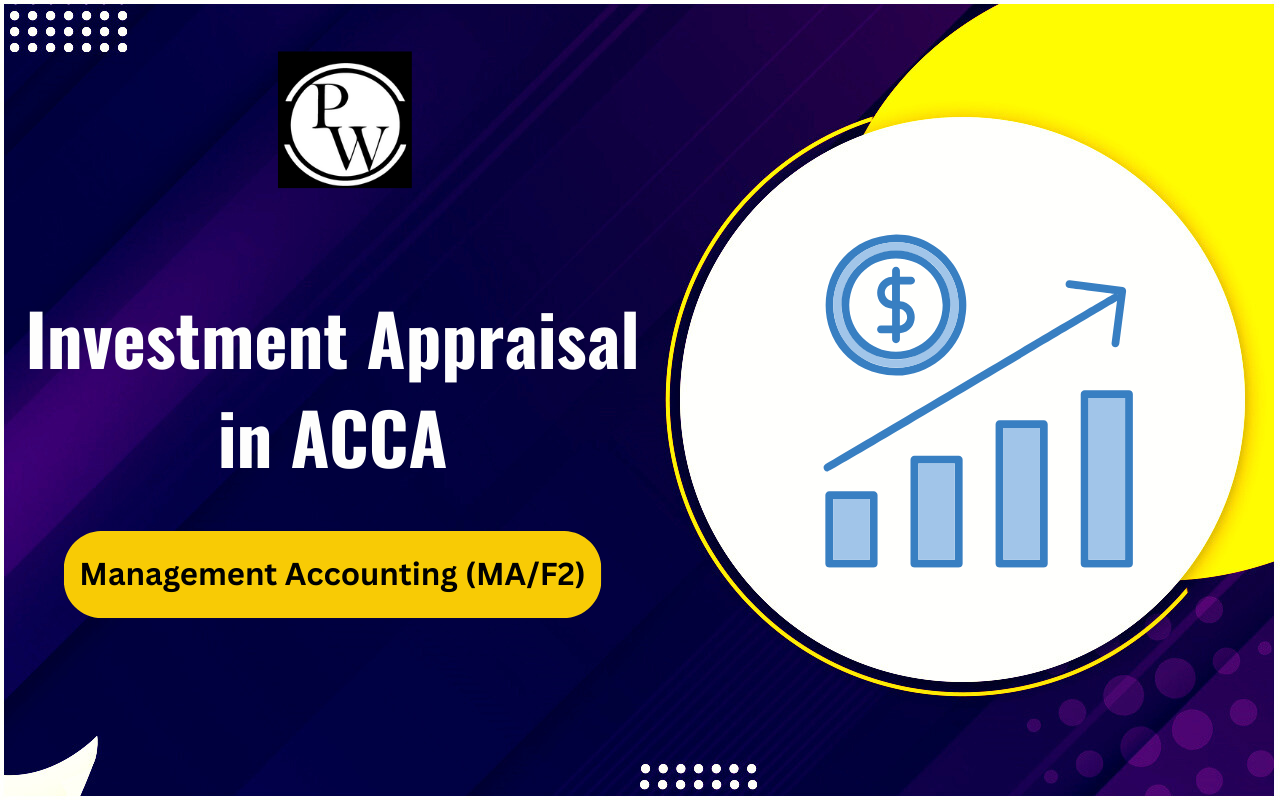
The Corporate and Economic Laws is the CA Final Course Paper 4 according to the CA new scheme. In preparing for the CA Final Paper 4 on Corporate and Economic Laws, you should prioritize topics to avoid feeling overwhelmed and to enhance your ability to memorize effectively.
In this blog, we will share tips and tricks on preparing for the CA Final Paper on Corporate and Economic Laws. Understanding the study material of ICAI and learning techniques for presenting your answers more effectively is crucial, which will help you perform better in the CA Final exam .CA Final Corporate and Economic Laws Paper Overview
The CA Final Corporate and Economic Laws paper places a strong emphasis on practical application and covers a mix of conceptual questions and practical case studies that assess students' understanding of the entire syllabus.CA Final Corporate and Economic Laws Paper Exam Pattern
The CA Corporate and Economic Laws paper consists of a maximum of 7 questions, out of which candidates need to answer only 6 questions. Question 1 is mandatory. The time limit for completing the exam is a maximum of three hours.| CA Final Corporate and Economic Laws Paper Exam Pattern | |
| Particulars | Details |
| Number of Questions | Total 7 Questions, Answer any 6, Question 1 is mandatory |
| Time Limit | 3 hours |
| Maximum Marks | 100 |
| Assessment Criteria | Analytical skills, reporting efficiency, and comprehensive knowledge |
| Sections in Each Question | 3 or 4 |
| Assessment Ratio | 30% based on 2023 MCQs and 70% based on old patterns |
Examiner's Expectations for CA Final Corporate and Economic Laws Paper
The examiner expects students to demonstrate their ability to interpret and analyze the facts presented in the problem(s) and identify relevant legal points. This should be done by referring to appropriate provisions of the law, precedents, case laws, latest developments, and using clear and coherent language. Additionally, the examiner wants to see the exercise of good judgment and logical presentation of answers. Conceptual clarity, analytical skills, in-depth knowledge, and intelligence displayed in presenting answers logically will be given more importance than simply reproducing memorized information.Corporate and Economic Laws Paper Chapter-wise Weightage
The table below shows the CA Final chapter-wise weightage and chapter details for the subjects of Company Law, Securities Laws, and Economic Laws:| Corporate and Economic Laws Paper Chapter-wise Weightage | ||
| Chapter No. | Chapter Name | Marks Weightage |
| Section-A: Company Law | ||
| 1 | Appointment and Qualifications of Directors | 8 |
| 2 | Appointment and Remuneration of Managerial Personnel | 10 |
| 3 | Meetings of the Board and its Powers | 8 |
| 4 | Inspection, Inquiry, and Investigation | 5 |
| 5 | Compromises, Arrangements, and Amalgamations | 4 |
| 6 | Prevention of Oppression and Mismanagement | 6 |
| 7 | Winding Up | 7 |
| 8 | Companies incorporated outside India | 6 |
| 9 | Miscellaneous Provisions | 6 |
| 10 | Compounding of Offences, Adjudication, Special Courts | 4 |
| 11 | National Company Law Tribunal and Appellate Tribunal | 5 |
| 12 | Corporate Secretarial Practice – Drafting of Notices, Resolutions, Minutes, and Reports | 8 |
| Section-B: Securities Laws | ||
| 1 | The Securities Contract | 5 |
| 2 | SEBI | 6 |
| Part II: Economic Laws | ||
| 1 | The Foreign Exchange Management Act, 1999 | 6 |
| 2 | The Securitisation and Reconstruction of Financial Assets and Enforcement of Security Interest Act, 2002 | 8 |
| 3 | The Prevention of Money Laundering Act, 2002 | 4 |
| 4 | Foreign Contribution Regulation Act, 2010 | 5 |
| 5 | The Arbitration and Conciliation Act, 1996 | 4 |
| 6 | The Insolvency and Bankruptcy Code, 2016 | 8 |
How to Prepare for CA Final Group 1 Corporate and Economic Laws Paper
In the Corporate and Economic Laws paper, you will cover two main sections: Company Law and Securities Laws, along with Economic Law. Company Law and Securities Laws together account for 60 marks, while Economic Law covers the remaining 40 marks. To begin your preparation, focus on the essential chapters of the Companies Act, such as "Appointment and Qualifications of Directors" and "Appointment and Remuneration of Managerial Personnel." These chapters are considered fair and are scoring.Step 1: Start with Company Law
Begin with chapters in the Companies Act that are considered fair and scoring, such as "Appointment and Qualifications of Directors" and "Appointment and Remuneration of Managerial Personnel." Gradually cover all remaining chapters of the Companies Act.Step 2: Move on to Securities Laws
After completing the Companies Act, shift your focus to Securities Laws. Pay extra attention to topics like "The Securities Contract (Regulation) Act, 1956" and "The Securities Contract (Regulation) Rules, 1957."Step 3: Tackle Economic Law
Economic Law covers 40 marks but may be perceived as boring and tough compared to Company Law. Despite this, approach it with determination and dedication.Additional Tips
- After studying each section, immediately attempt MCQs related to that section to solidify your understanding and remember important points effectively.
- Understanding concepts is crucial as the law often requires interpretation, so grasp the subject matter thoroughly.
- Memorizing section numbers is useful, but avoid writing them if you are uncertain, as it may lead to unnecessary mark deductions.
- Explore questions from previous ICAI exam papers, RTPs, MTPs, and the latest series of test papers to enhance your preparation.
- Stay updated with the latest content, speed, and concepts by using our test papers, which are thoroughly researched and contain new questions.
Study Plan for CA Final Group 1 Corporate and Economic Laws Paper
- Compromises, Arrangements and Amalgamations, National Company Law Tribunal and Appellate Tribunal, etc.
- These chapters deal with legal aspects of business, such as compromises, arrangements, amalgamations, and court systems.
- Revise them twice to ensure a solid understanding.
- Foreign Contribution Regulation Act, 2010, SEBI Act, 1992, Prevention of Oppression and Mismanagement, Winding Up, etc.
- These chapters involve acts and regulations related to foreign contributions, securities, and winding up of companies.
- Focus on three revisions to gain confidence in these areas.
- Appointment and Qualifications of Directors, Appointment and Remuneration of Managerial Personnel, Meetings of Board and its Powers, etc.
- These chapters cover matters related to the appointment and remuneration of directors and managerial personnel, as well as board meetings.
- Focus on three revisions to gain confidence in these areas.
- The Securitisation and Reconstruction of Financial Assets and Enforcement of Security Interest Act, 2002, The Insolvency and Bankruptcy Code, 2016, Inspection, Inquiry, and Investigation, etc.
- These chapters deal with financial assets, security interest, insolvency, and investigation procedures.
- Aim for three revisions for a comprehensive understanding.
- The Foreign Exchange Management Act, 1999, The Prevention of Money Laundering Act, 2002, The Securities Contract (Regulation) Act, 1956 and the Securities Contract (Regulation) Rules, 1957
- These chapters cover acts related to foreign exchange, money laundering prevention, and securities regulation.
- Revisit them twice to grasp the key concepts.
CA Final Preparation Strategy for Corporate and Economic Laws Paper
While preparing for CA Final, focus on the following key areas:- Understanding Key Terms : Pay special attention to the crux and key terms of every provision.
- Appropriate Legal Vocabulary : Practice using the right legal vocabulary in your study.
- Important Sections and Case Studies : Thoroughly study and grasp the most important sections and case studies. These will be valuable in emphasizing your answers and adding value to them.
- Writing Practice : Regularly practice writing to enhance your ability to produce legal language effectively. Use appropriate legal vocabulary, terms, section numbers, case law references, and more.
- Attempt Mock Test Paper s: Dedicate time to attempt 2 or 3 mock test papers sincerely. Set a slightly shorter time limit (e.g., 2 hours 45 minutes) to simulate exam conditions and improve your speed.
- Efficient Time Management : Prioritize attempting all questions over spending too much time on a single question. The initial marks of each question are usually easier to score.
- Quote Relevant Section Numbers and Case Law : Enhance the quality of your answers by including relevant section numbers and case law references when applicable.
- Focus on Multiple Choice Questions (MCQs ): Give proper attention to MCQs and practice answering them effectively.
- Clear Understanding of Syllabus : To score well in the CA Final Law Paper, it is crucial to have a thorough understanding of the CA Final Paper 4 syllabus. Focus on comprehending the concepts from all chapters, as questions often come in the form of case studies. Carefully read the case studies and identify the relevant concepts for better answers.
- Elaborate Answers for High-Marks Questions : When dealing with questions carrying more marks, avoid providing overly concise answers. Instead, aim to write detailed and comprehensive responses. Writing short answers for high-marks questions might hinder your ability to score well. Take note of the marks weightage before attempting any question.
- Include Relevant Content : Ensure that your answers include all the necessary components, such as mandatory tables, diagrams, and rough sketches. These additional elements can enhance the quality of your answers and help you secure extra marks.
- Stay Calm and Analyze Questions : In the final exam, you might encounter aptitude questions on generalized topics. If you find a question challenging, remain calm and analyze it carefully. Don't let psychological pressure overwhelm you. Instead, interpret the question in your own way and write your answers thoughtfully.
Corporate And Economic Laws FAQs
What is the exam pattern for the CA Final Corporate and Economic Laws paper?
The CA Final Corporate and Economic Laws paper consists of a maximum of 7 questions, with candidates needing to answer 6 questions. The time limit is 3 hours, and it carries a maximum of 100 marks.
How many marks are allocated to Company Law and Securities Laws in the CA Final Corporate and Economic Laws Paper?
Company Law and Securities Laws together account for 60 marks in the CA Final paper.
How many questions do I need to answer in the CA Final Corporate and Economic Laws Paper?
Candidates need to answer any 6 out of the maximum of 7 questions, and Question 1 is mandatory.
How many marks does Economic Law cover in the CA Final Corporate and Economic Laws paper?
Economic Law covers 40 marks in the CA Final Corporate and Economic Laws paper.
Talk to a counsellorHave doubts? Our support team will be happy to assist you!

Free Learning Resources
PW Books
Notes (Class 10-12)
PW Study Materials
Notes (Class 6-9)
Ncert Solutions
Govt Exams
Class 6th to 12th Online Courses
Govt Job Exams Courses
UPSC Coaching
Defence Exam Coaching
Gate Exam Coaching
Other Exams
Know about Physics Wallah
Physics Wallah is an Indian edtech platform that provides accessible & comprehensive learning experiences to students from Class 6th to postgraduate level. We also provide extensive NCERT solutions, sample paper, NEET, JEE Mains, BITSAT previous year papers & more such resources to students. Physics Wallah also caters to over 3.5 million registered students and over 78 lakh+ Youtube subscribers with 4.8 rating on its app.
We Stand Out because
We provide students with intensive courses with India’s qualified & experienced faculties & mentors. PW strives to make the learning experience comprehensive and accessible for students of all sections of society. We believe in empowering every single student who couldn't dream of a good career in engineering and medical field earlier.
Our Key Focus Areas
Physics Wallah's main focus is to make the learning experience as economical as possible for all students. With our affordable courses like Lakshya, Udaan and Arjuna and many others, we have been able to provide a platform for lakhs of aspirants. From providing Chemistry, Maths, Physics formula to giving e-books of eminent authors like RD Sharma, RS Aggarwal and Lakhmir Singh, PW focuses on every single student's need for preparation.
What Makes Us Different
Physics Wallah strives to develop a comprehensive pedagogical structure for students, where they get a state-of-the-art learning experience with study material and resources. Apart from catering students preparing for JEE Mains and NEET, PW also provides study material for each state board like Uttar Pradesh, Bihar, and others
Copyright © 2025 Physicswallah Limited All rights reserved.
Get App







